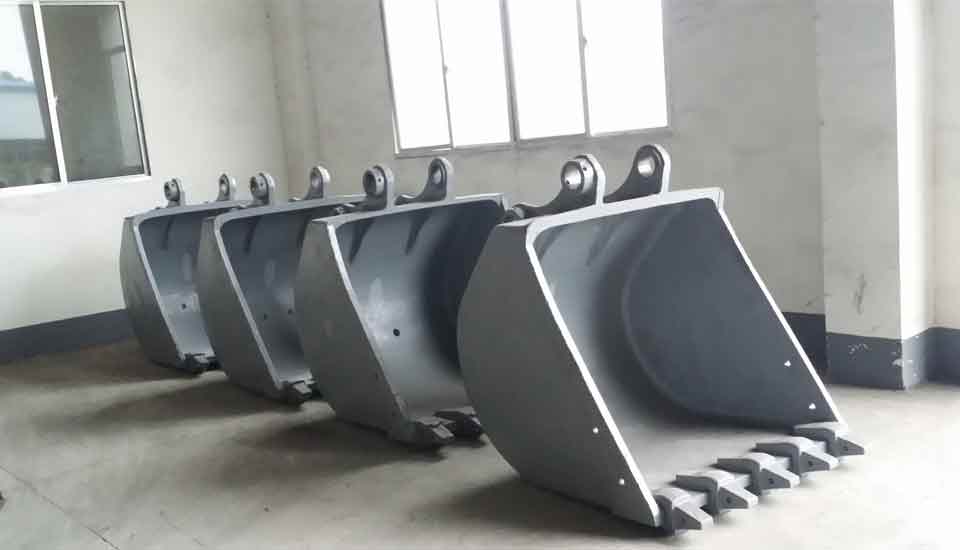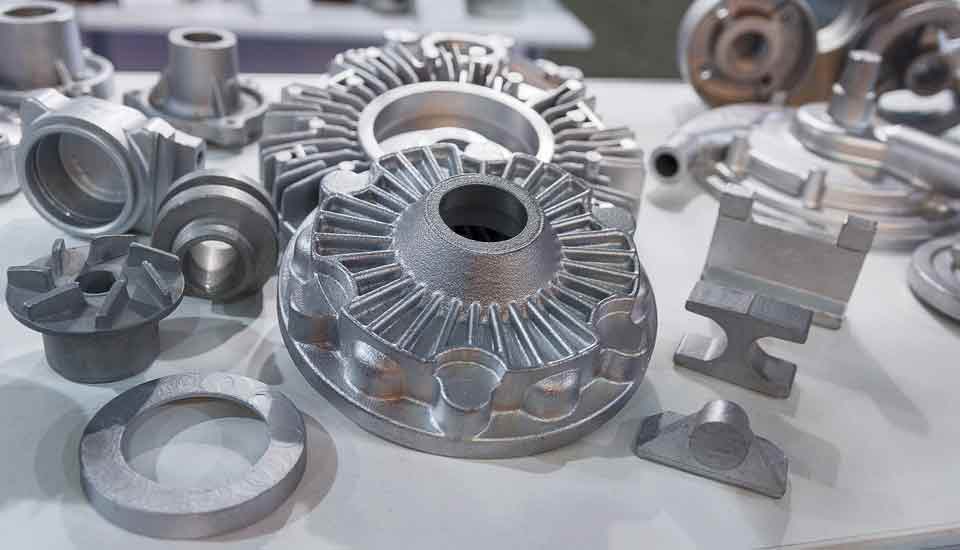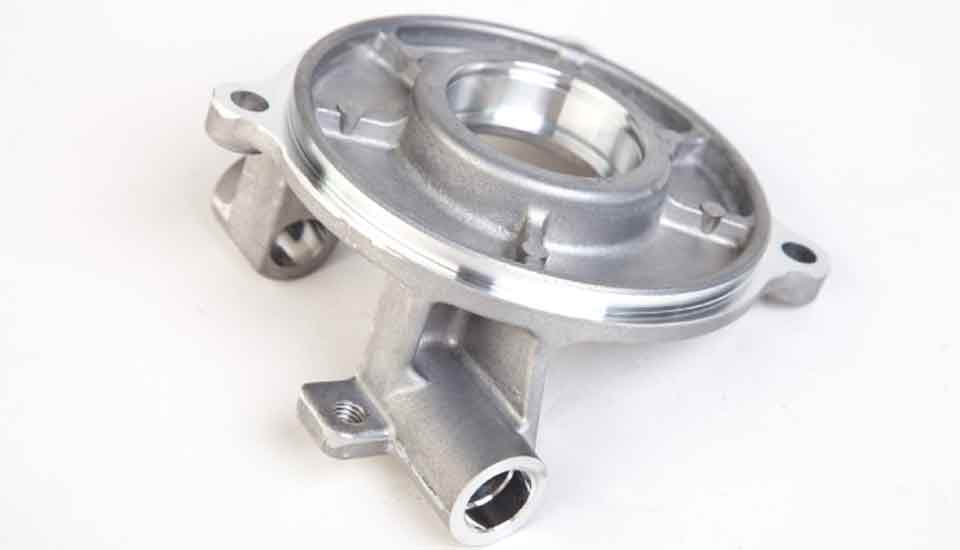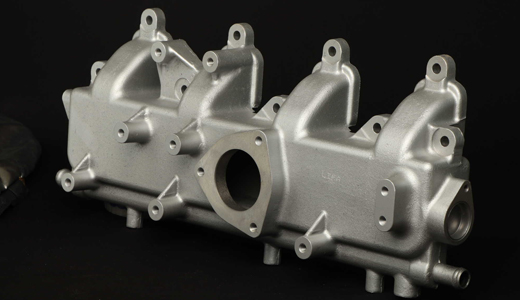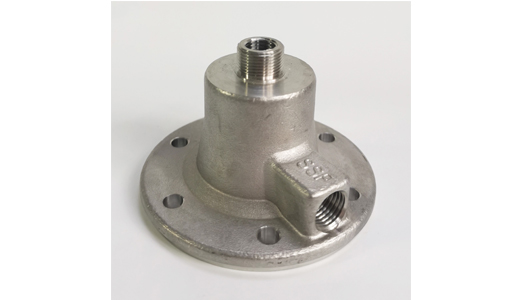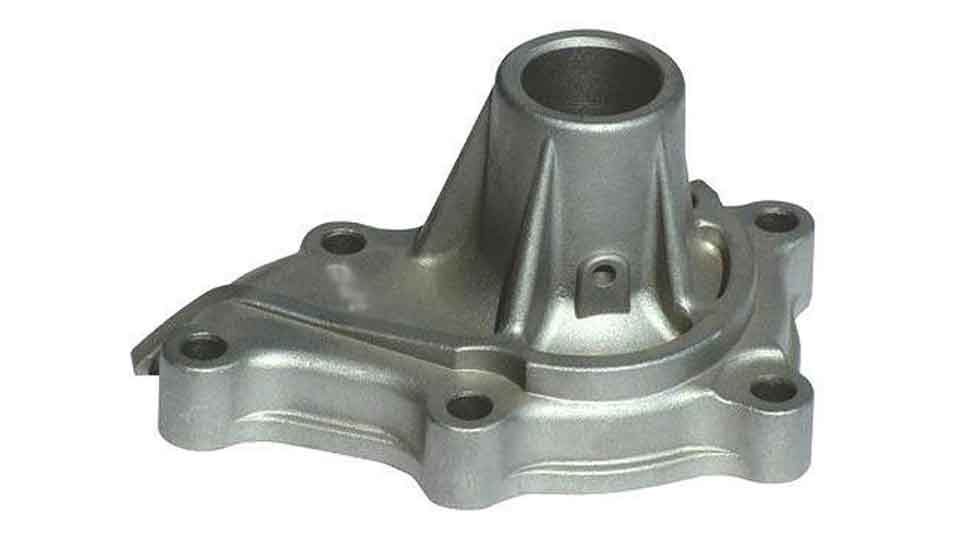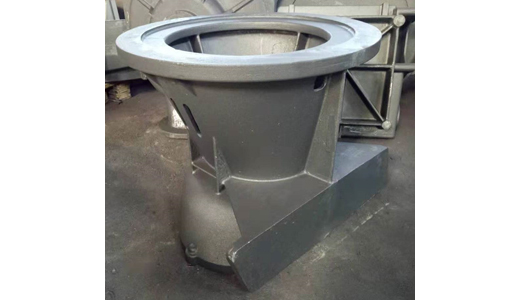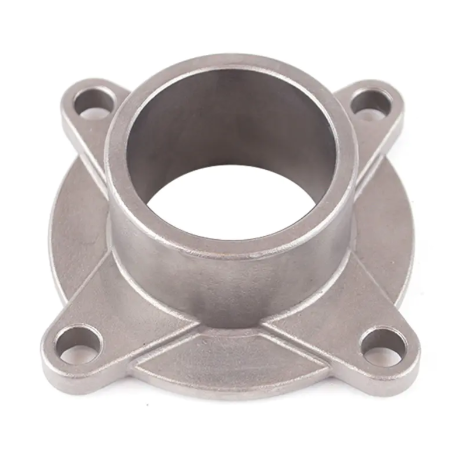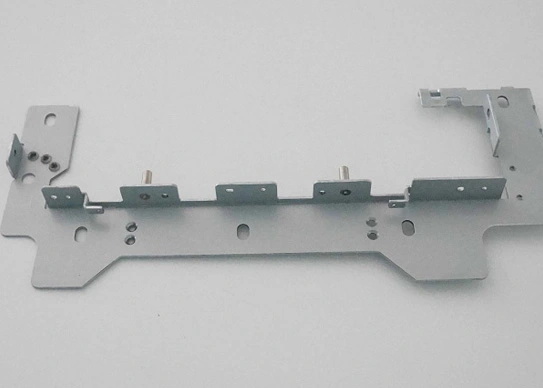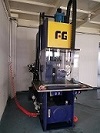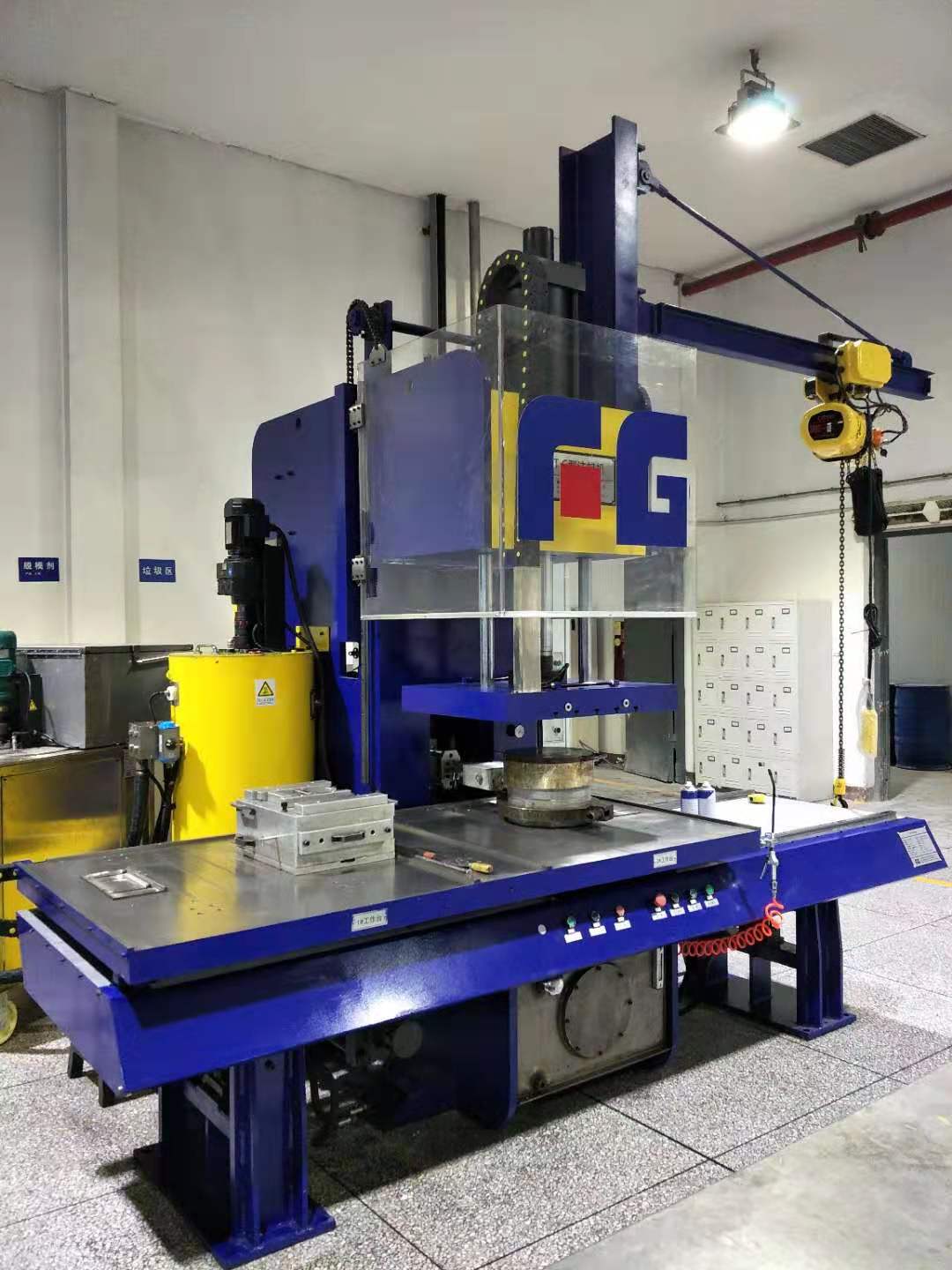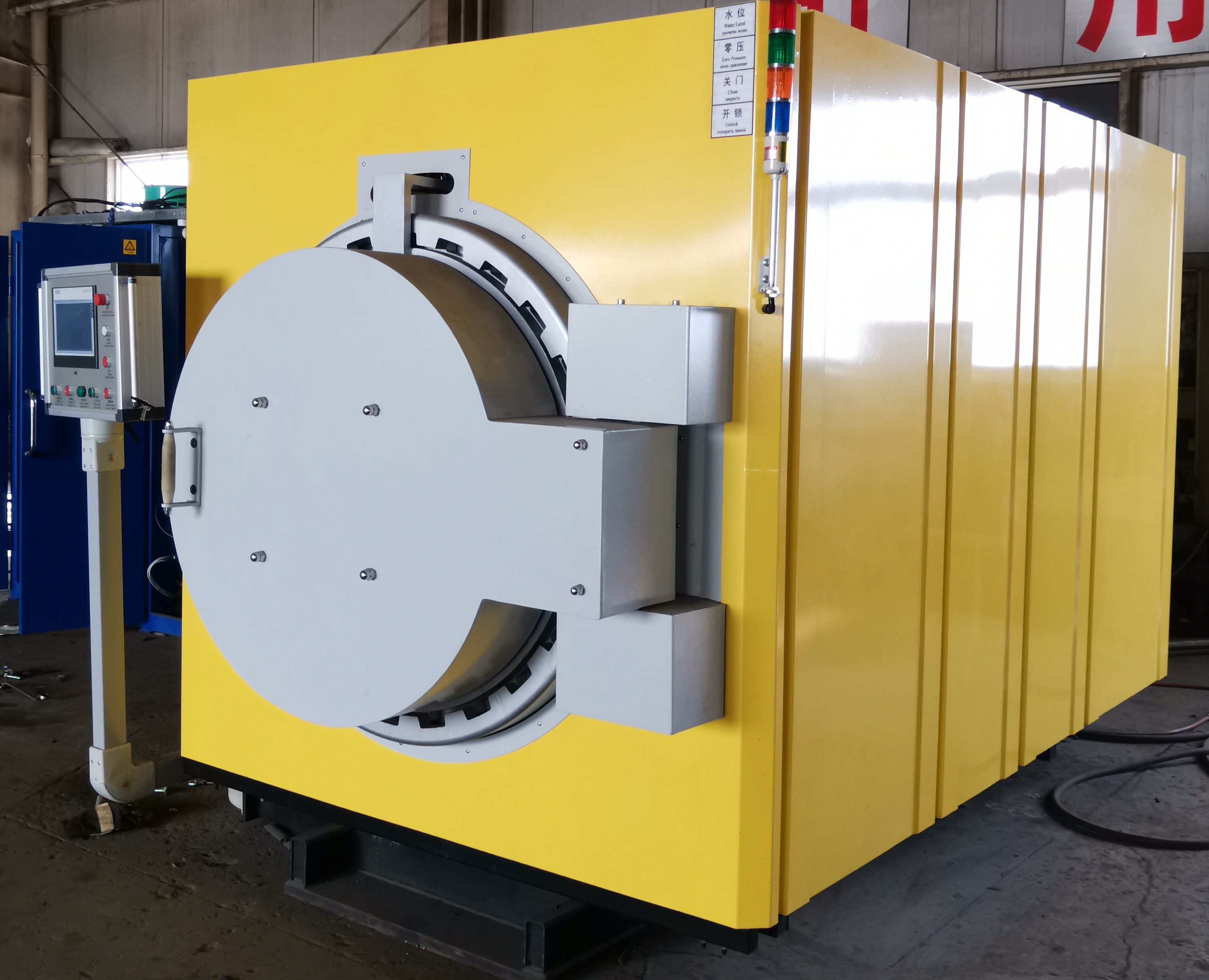Sand Casting
Sand casting is the most commonly applied method for casting the metal part. It suits most of the raw materials, ferroalloy, and non-ferroalloy both can be used to do the sand casting. Sand casting is able to produce the part varying from several gram weight to dozens of tons, or even be heavy to hundred tons.
The disadvantage of sand casting is, relatively simple structure part is suitable for it. And sand castings generally have a rough surface sometimes with surface impurities and surface variations. The internal density of a part made by sand casting also is lower than some more advanced casting methods such as investment casting or die casting.
But the most advantage of sand casting is the low production cost. It can be used by both hand molding and machining molding. Hand molding is suitable to single and small quantity ordered product or applies to big, complicated shaped casting part which is too hard to use by machining molding. The machining molding is able to noticeably increase the surface quality and the degree of accuracy of the casted part, but it's quite expansive.
Features Of Sand Casting
relatively inexpensive production cost
low costs for equipment and tooling
suitable to both small quantity production and large quantity production
easy forming of large or complex parts
short lead times
more material options
The Basic Sand Casting Process
Making the pattern
The pattern is in the same shape and dimension as the desired part, but the allowance for thermal contraction and shrink shall be considered.
Create the gates and risers
This step is also included during "step 1: making the pattern". The gates and risers give the pathways for metal flow during the sand casting process, and let the gas venting as the designer expected.
The mold creating
The mold can be deemed as a box (halves, made by wood or metal) firmly filled with sand in the desired shape. Typically the mold is in 2 pieces, the top part names "cope", the lower part names "drag". These 2 pieces were separated after the sand forming is completed, then remove the pattern. Usually, the refractory coating is applied to the sand so that having a better surface finish and help to protect the mold during the metal pouring in the next step. Then close the 2 pieces of mold to leave a cavity inside with the proper shape of the desired product.
Pouring the metal
Heating the metal until it's melted completely at a certain temperature, then pure the liquid into the static mold. Along with the melted metal flow inside the cavity and cooled slowly, the solid part will be created eventually. The heating temperature and the speed of cooling down of melt metal are very important factors during this sand casting process because overheated or less heated metal is all might cause some defects on the final product, such as crack, hole, porosity, etc.
Shake out
After cooling down, open the sandbox to fetch the casting part. The removed sand could be reused in future production after necessary treatment.
Final operations
Remove the undesired part from the casting product. To have a better surface finish, usually, the ball mill process will be followed. If necessary, further machining process, heating treatment, and so on will be needed to achieve the final required product.
Advantages of Sand Casting Process
Sand casting is one of the casting processes. The mold used in sand casting is usually composed of an outer sand mold and a core. Because the sand casting molding materials used are inexpensive and easy to obtain, easy for casting manufacturing. As for single-piece production of castings, batch production and mass production can be adapted, for a long time, the sand casting process has been the basic process of casting production. At present, internationally, in the production of all castings, 60 to 70% of the castings are produced with sand, and about 70% of them are produced with clay sand.
Sand Casting Materials
The basic raw sand casting materials for manufacturing sand forms are foundry sand and sand binder. The most commonly used foundry sand is silica sand. When the high-temperature performance of silica sand cannot meet the requirements, zircon sand, chromite sand, corundum sand, and other special sand are used in the sand casting process. In order to make the sand type and core with a certain intensity, in handling, closing, and pouring liquid metal will not be deformed or damaged, generally in the to add sand binder, the loose sand particles bonded together into the sand.
The most widely used sand binder is clay, which can also use a variety of dry oil or semi-dry oil, water-soluble silicate or phosphate, and a variety of synthetic resins for sand binder.
The external sand type used in the sand casting process is divided into three types: clay wet sand type, clay dry sand type, and chemically hardened sand type according to the binder used in sand and the way it builds strength.
Requirements Of Sand Molds For Metal Casting
The process in the sand molds for the metal casting production preparation process must be reasonable to develop the casting process plan and drawing out the casting process diagram.
The casting process diagram is a graphical representation of the casting process plan with various process symbols in the part diagram, including the casting location, casting parting surface, the number, shape, fixing method and order of cores, machining allowance, mold slope, shrinkage rate, pouring system, riser, size and arrangement of cold iron, etc. The casting process diagram is the basic process document to guide the design of mold pattern (core box), production preparation, mold manufacturing, and casting inspection. According to the casting process chart, combined with the selected modeling method, you can draw a mold pattern and box together.
Rayforce Manufacture is a private casting manufacturing companyand sand casting factory, we provide sand casting china, sand casting parting lineand etc. Want to buy sand castingor know what is sand casting used to makeor sand casting price? Please contact us.
在线联系供应商
Other supplier products
| Investment Casting | Investment casting, also called the lost-wax casting process, is actually an ancient metal casting technology with a history of over 6,000 years. I... | |
| Silica Sol Investment Casting | The silica sol also shares the name of water glass in general, it is used by the meatal casting process as mold adhesive which is mixed with sand a... | |
| Stainless Steel Investment Casting | The stainless steel has much better physical properties then iron and normal steel, but it possesses worse casting properties. Because the stainles... | |
| Investment Casting | Investment casting, also called the lost-wax casting process, is actually an ancient metal casting technology with a history of over 6,000 years. I... | |
| Resin Sand Casting | Resin sand castingis a kind of floor molding process, by mixing the resin with quartz sand and solidification agent, to create the very hard and so... |
Same products
| Industrial 3-Piece Stainless Steel Valve Parts | 卖方: Qingtian Baoli Casting Co., Ltd. | Industrial 3-Piece Stainless Steel Valve Partsare manufactured for use in pipelines and process s... | |
| METAL BRACKETS | 卖方: JCL Precision Part Co.Ltd. | Custom metal brackets are some of the strongest supports. JCL precision-engineers them to your cu... | |
| 陶瓷型芯注射机 | 卖方: 秦皇岛埃孚科技有限公司 | 陶瓷型芯注射机主要用于形状复杂,高品质、高精度铸件的陶瓷型芯的成型。该设备通过吸收国内外先进制造技术和精铸行业的自身特点,研制开发成功。 合模力:35T-100T | |
| 压蜡机 | 卖方: 秦皇岛埃孚科技有限公司 | 注蜡机用于精密铸造生产中蜡模的制作。合模力最大 :10T-150T | |
| 全自动脱蜡釜 | 卖方: 秦皇岛埃孚科技有限公司 | 脱蜡釜,是精铸生产中的型壳脱蜡专用设备 内腔尺寸: Φ1000×1200mm/ Φ1200×1500mm/ Φ1400×1600mm |





